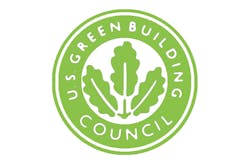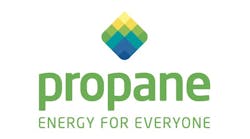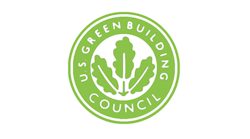Latest from Green
Sponsored

By Elizabeth Beardsley, Senior Policy Counsel, U.S. Green Building Council
The Inflation Reduction Act includes dozens of programs to fund climate mitigation and adaptation actions in buildings, building materials, cities, and states. USGBC continues to update its slide deck highlighting the programs related to green buildings and communities as more information becomes available. Plus, some programs from the bipartisan Infrastructure Investment and Jobs Act (IIJA) are beginning to roll out, such as energy improvement funding for school facilities.
Right now, the IRA focus is on stakeholder input. Federal agencies are issuing requests for information (RFIs), posing questions to gather ideas as they work to develop guidance and implement their programs.
- Listen to the author on the December 2021 episode of HPAC Engineering's On The Air podcast.
USGBC has submitted comments on several RFIs in the past week. We provided comments to the Department of Energy (DOE) on the IIJA’s Grid Resilience and Innovation Partnerships program, which has $10.5 billion to improve grids. USGBC called for DOE to use some of these funds to advance grid-interactive efficient buildings (GEBs). Such buildings can deliver tremendous benefits to the grid, helping to move from research and demonstration to actual deployment at scale that would help the U.S. lead the world in developing and implementing technologies.
To that end, we urged DOE to allocate substantial portions of several programs—Smart Grid Grants, Grid Resilience Grants and the Grid Innovation Program—to GEB activities, ideally for projects that deploy a diverse set of technologies for meeting grid flexibility goals, rather than ones that merely install smart meters. To ensure funded projects achieve outcomes, we recommended DOE consider use of relevant third-party certifications in all three programs, which could include PEER and LEED. We also recommended that utilities not be the sole funding recipients in these programs.
USGBC also submitted a response to the U.S. Housing and Urban Development (HUD) RFI for the Green and Resilient Retrofit Program. This program will deploy $837.5 million through grants and loans to multifamily affordable housing retrofits, with objectives of improving energy and water efficiency, indoor air quality, sustainability, building electrification, low-carbon materials, and on-site low-carbon energy generation and storage. View comments on the RFI.
We recommended that HUD:
- Emphasize energy and water efficiency as the core starting point for all retrofits;
- Collaborate with stakeholders to implement the program effectively, as well as support outreach and equitable distribution of funds;
- Apply HUD’s experience in other programs and include leveraged private sector finance, as well as optimizing use of other incentives and funding for deep retrofits;
- Adopt building science best practices and life cycle cost-benefit analysis, accounting for nonfinancial benefits;
- Ensure that adequate and appropriate data are collected to demonstrate the value of the program.
Next on USGBC's agenda will be comments to the U.S. Treasury and IRS on IRA tax credits, including 179D (commercial building energy efficiency tax deduction), 45L (new energy-efficient and zero energy homes), and renewable energy and storage credits, as well as comments for the General Services Administration on several federal building and procurement programs.
Between now and December, responses will be due on RFIs relevant to USGBC members, including several pertaining to these IRA programs:
- GSA: Federal Buy Clean Request for Information: Construction Materials with Substantially Lower Embodied Carbon, due Nov. 3;
- Treasury and IRS: Request for Comments on Prevailing Wage, Apprenticeship, Domestic Content, and Energy Communities Requirements, due Nov. 4;
- Treasury and IRS: Request for Comments on Incentive Provisions for Improving the Energy Efficiency of Residential and Commercial Buildings, due Nov. 4;
- Treasury and IRS: Request for Comments on Energy Security Tax Credits for Manufacturing Under Sections 48C and 45X, due Nov. 4;
- Treasury and IRS: Request for Comments on Elective Payment of Applicable Credits and Transfer of Certain Credits, due Nov. 4;
- DOE: Energy Improvements in Rural or Remote Areas (ERA) Program, due Nov. 28;
- EPA: Request for Information: Greenhouse Gas Reduction Fund, due Dec. 5;
- EPA: Request for Information: Better Indoor Air Quality Management To Help Reduce COVID-19 and Other Disease Transmission in Buildings: Technical Assistance Needs and Priorities To Improve Public Health, due Dec. 5;
- Treasury: SBA, Commerce, DOT, HUD, and USDA, Notice and Request for Information-Opportunities and Challenges in Federal Community Investment Programs, due Dec. 5;
- GSA and DOE: Technologies for Net Zero Carbon Buildings, due Dec. 9.
Please contact the Advocacy and Policy team with any questions.


